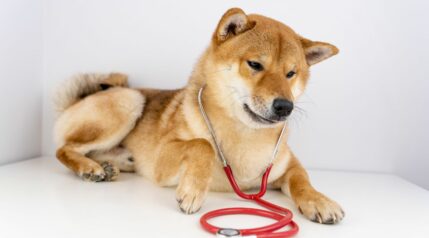The smell of salmon, or any fish, is enough to send Fido into a frenzy. Especially if they can see you eating it without sharing. So, if you’re wondering whether they can have a bite of your salmon bagel, or if you’re worried that they’ve just eaten a scrap off the kitchen floor, you’ve come to the right place.
Salmon is one of the most commonly consumed fish in the world. Everyone knows that including oily fish in our diet is essential as it offers many health benefits. But what about our canine friends? Yes, dogs can eat salmon, which is very good for them in moderation. It provides high-quality protein and healthy fats, which are crucial for a balanced diet.
You should also know that some types of salmon, like raw salmon, are a big no-no for dogs. Salmon poisoning can be fatal to dogs, so it’s essential to understand what types of salmon you can give your dogs and how much they can eat. Let’s dive into the sea of information you need to know before you feed your dog that scrumptious salmon.
Is Salmon Good For Dogs?

Yes, salmon is good for dogs, but only in moderation when it is served properly. But like most things in life, it isn’t as simple as that, and there are a few important facts you need to know before chucking a bowl of salmon down for them to eat. Before we get onto that, let’s take a closer look at the main benefits of salmon for dogs:
- It is an excellent source of healthy omega-3 fatty acids. This supports your dog’s immune system, keeps their heart healthy, and it can also decrease inflammation.
- It is rich in eicosapentaenoic acid (EPA) and docosahexaenoic acid (DHA). These are important omega-3 fatty acids in eye and brain development during puppyhood. As well as proper fetal development.
- Salmon is a high-quality protein comparable to beef and poultry. Protein is vital for maintaining bone health, helping the body heal and repair, and preventing muscle loss.
- It supports joints and mobility. Fish oil is well-known for supporting joint health. Salmon also contains astaxanthin, which is an anti-inflammatory compound.
- Salmon assists with coat and skin health, keeping it nourished. Omega-3 fatty acids improve skin barrier function by sealing in moisture and protecting from irritants.
- It is highly digestible. A study by University of Illinois Urbana researchers found that salmon is slightly more digestible than chicken. So if your pup has a sensitive tummy, salmon could be a great option rather than other protein sources.
- Salmon is rich in micronutrients, which are important for a balanced diet. These include vitamins A, B6, B12, and D and niacin, thiamin, selenium, potassium, and folic acid.
What Types Of Salmon Can I Give My Dog?

The only salmon you can feed your dog is well-cooked, deboned salmon. Always choose fresh, boneless fillets of salmon. However, there is still a chance that they could contain small bones, so you still need to check for tiny bones before cooking. Bones are a hazard that can choke your dog, lodge in, or puncture their digestive tract.
It doesn’t matter how you cook it, as long as it is cooked thoroughly. Baking, grilling, poaching, roasting, or steaming are all fine. But do not cook the salmon with oil, sauce, salt, or other seasonings such as garlic, as these are toxic to dogs and can cause stomach upset. You can feed your dog canned salmon as long as it is packed with water rather than brine or oil.
What Types Of Salmon Can I Not Feed My Dog?

Never feed your dog raw or undercooked salmon. This means that Fido cannot share your sushi platter. It also means that they cannot eat smoked salmon. Not only is smoked salmon uncooked, and the smoking process might not kill harmful bacteria, but it is also full of salt. Although dogs need salt in their diet, too much is bad for dogs because it can lead to dehydration and salt toxicity.
Raw or uncooked salmon can contain bacteria and parasites. Neorickettsia helminthoeca is a parasite that can cause salmon poisoning in dogs, which can be fatal. It can also be caused by eating salamanders, and it is most commonly seen in the Pacific Northwest, such as Washington, Oregon, northern California, and southern Vancouver Island (Canada). However, your dog can get salmon poisoning anywhere. Clinical signs of salmon poisoning in dogs include:
- Fever
- Vomiting and diarrhea
- Lethargy and weakness
- Dehydration
- Swelling of lymph nodes
- Discharge from nose and eyes
- Decrease in appetite
Symptoms can take six to ten days to develop. If you suspect your dog has eaten raw or undercooked salmon, call your vet immediately, time is of the essence. If your vet diagnoses salmon poisoning, they will likely prescribe medication to kill the bacteria and antibiotics to control the bacterial infection. With the appropriate treatment, most dogs recover completely. However, if not treated, most dogs die within two weeks. Emergencies such as pet poisoning can be costly, so be sure to consider pet insurance for your beloved pup before they start having major health concerns.
How Much Salmon Can I Give My Dog?

Like most foods, feeding your pup everything in moderation is vital to keeping your pooch happy and healthy. You should limit salmon to a once-a-week treat for healthy, active dogs. It’s also important to ensure it’s a portion suitable for your dog’s size. A dog can safely eat up to 10g of salmon for every 450g that they weigh. If it’s the first time you’ve given your pooch salmon, only give them a small amount and monitor them over 48 hours to ensure they are not allergic to it.
Frequently Asked Questions
What Is The Best Fish To Feed My Dog?
There isn’t a ‘best fish’ to feed your dog. Salmon is a healthy and delicious treat when given in moderation and as a treat. Salmon shares its benefits with many other fish, such as whitefish, cod, and hank. Dogs can also eat tuna, but only in small amounts, and it should never be given to pregnant dogs or puppies due to its high mercury content.
When Can Puppies Eat Salmon?
Yes, puppies can eat salmon when they are weaned from the milk and start eating other solid foods. Be mindful that they should only consume 10mg of salmon per 450g of body weight, so the amount you give them is much smaller compared to an adult dog.
Can Dogs Eat Salmon Skin With Scales?
Yes, dogs can eat salmon skin with the scales on. The scales are nutritionally beneficial and contain protein and healthy omega-3 fatty acids. Ensure the salmon is cooked thoroughly and the scales aren’t unusually large or sharp. Otherwise, like small bones, they may lodge themselves in your dog’s digestive tract.
Final Thoughts
Now you know that your dog can eat salmon. But only salmon that is well-cooked and without bones. This includes salmon fillets or canned salmon, but only canned salmon packed in water rather than brine or oil. Do not be tempted to feed your dog any other type of salmon, especially raw or uncooked salmon. They can harbor parasites that can cause salmon poisoning, which can be fatal if left untreated.
Like most things, salmon is best given to your dog in moderation according to the instructions above and only as a weekly treat. But you can be sure if you share your salmon with Fido, you are ensuring they eat a nourishing diet, and you will also be their favorite person in the world.





